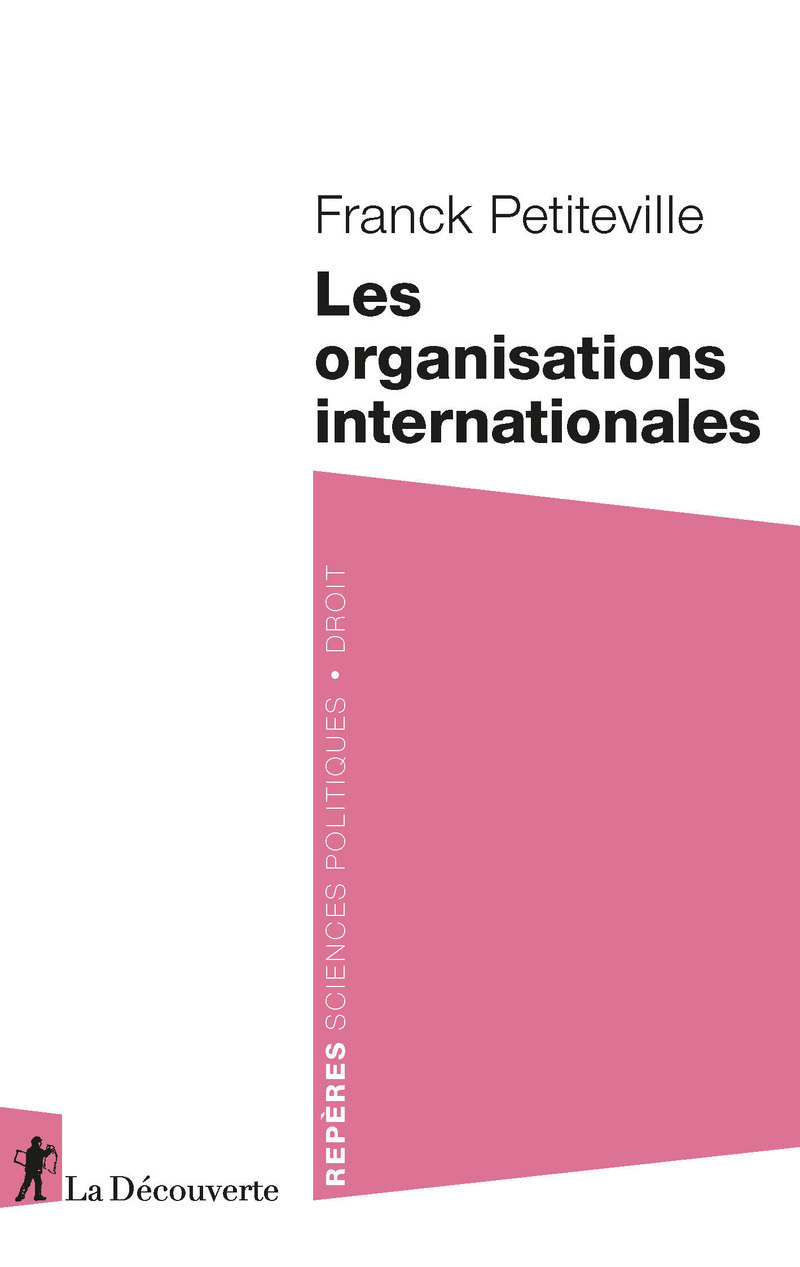Les organisations internationales
Franck Petiteville
Depuis 1945, les États ont multiplié les organisations internationales (ONU, Banque mondiale, OMS, OMC, etc.). Aucun enjeu des relations internationales n'échappe désormais à la compétence de ces organisations.
Comment interpréter leur prolifération avec le temps ? Comment s'adaptent-elles aux changements du système international ? Quelles fonctions exercent-elles ? De quel pouvoir disposent-elles face aux États ? Comment se construit leur légitimité ? Quelle est leur contribution aux grands enjeux des relations internationales (paix et sécurité, droits humains, globalisation, environnement) ?
Alors que le multilatéralisme est aujourd'hui mis à l'épreuve par le " retour " de l'État souverain et les rivalités entre grandes puissances, ce livre donne les clefs d'une mise en perspective historique, sociologique et théorique de la centralité des organisations internationales dans le monde globalisé.

Nb de pages : 128
Dimensions : * cm
ISBN numérique : 9782348055485
 Franck Petiteville
Franck Petiteville

Table des matières 

Introduction
I / La genèse des organisations internationales
De la SDN à l'ONU
La SDN comme expérience institutionnelle
La SDN comme expérience de sécurité collective
L'ONU, réplique de la SDN ?
La résurrection de la sécurité collective sous régime onusien
La prolifération des organisations internationales depuis 1945
L'association des organisations internationales à l'ONU
Les effets ambivalents de la guerre froide
Les organisations régionales et thématiques
L'incrémentalisme institutionnel à l'ONU
Le renouveau des organisations internationales après la guerre froide
Encadré :
La surreprésentation des villes du Nord dans l'accueil des sièges des organisations internationales
Conceptualiser le " monde " des organisations internationales
Encadré :
Le leadership dans les organisations internationales
II / L'organisation du monde
Organisations internationales et multilatéralisme
L'institutionnalisation des relations internationales
Des institutions marginales ?
L'institution de la coopération
Normes et légitimation collective
La socialisation diplomatique
La souveraineté des États à l'épreuve des organisations internationales
Le changement dans les organisations internationales
Le changement par les réformes institutionnelles
Reconfigurations de pouvoir et élargissements
Le changement normatif
Les organisations internationales en réseaux
III / La légitimité des organisations internationales
Une représentativité problématique
Une représentativité démocratique ?
L'Assemblée générale de l'ONU : un Parlement mondial ?
Le débat sur le déficit de représentativité du Conseil de sécurité de l'ONU
Quelle représentativité pour les institutions financières internationales ?
Un modèle de représentation à l'OIT ?
Quelle est la légitimité du G20 ?
La légitimité du droit
Une bureaucratie internationale ?
La légitimité par l'expertise
Encadré :
Le GIEC : une communauté épistémique transnationale ?
Les organisations internationales et la " société civile mondiale "
Des organisations dépolitisées ?
Facteurs et formes de dépolitisation
Une politisation irréductible
Encadré :
Le financement des organisations internationales : un enjeu politique
IV / Les organisations internationales entre guerre et paix
La contribution de l'ONU à la sécurité internationale : une histoire contrariée
Le maintien de la paix onusien
La lecture séquentielle des opérations de paix de l'ONU
La critique organisationnelle des opérations de paix
Les organisations internationales
La contribution des organisations régionales à la paix et à la sécurité
Les paradoxes de l'OTAN
L'action discrète de l'OSCE
L'Union européenne, acteur conditionnel de la résolution des conflits
L'Union africaine entre émergence et dépendance
Les organisations internationales et l'arme nucléaire
L'expertise de l'AIEA
L'Assemblée générale de l'ONU contre l'arme nucléaire
V / La protection des droits humains
Le Conseil des droits de l'homme de l'ONU au défi de la géopolitique
Encadré :
Le HCR et la protection des réfugiés
La Cour européenne des droits de l'homme
La justice pénale internationale
Les crimes internationaux
Des tribunaux ad hoc à la CPI
La CPI à l'épreuve des controverses
VI / La régulation de la mondialisation
Le FMI, du gold exchange standard aux crises de la finance globalisée
La Banque mondiale ou l'appropriation du développement
La crise sans fin de l'OMC
L'OMS et la gouvernance mondiale de la santé
Encadré :
Les organisations internationales face à la pandémie de Covid-19
La gouvernance fragmentée de l'environnement
Conclusion
Liste des sigles
Repères bibliographiques











